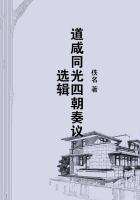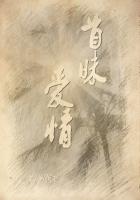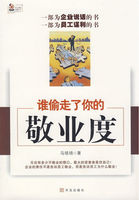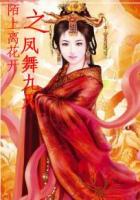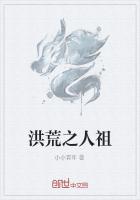I was like those wild flowers which grow without any art or culture, but with gay, lively colouring. I had plenty of hair, which was almost black. On looking at myself in the glass, though, I can truthfully say that I was not very well pleased with myself.
I was dark, my features were well cut, but not finished. People said that it was the expression of my face that made it interesting.
I think this was true. I was gay but dreamy, and my most natural expression was a meditative one. People said, too, that in this absent-minded expression there was a fixed look which resembled that of the serpent when fascinating his prey. That, at any rate, was the far-fetched comparison of my provincial adorers."They were not very far wrong, these provincial adorers. The portraits of Aurore at this date show us a charming face of a young girl, as fresh-looking as a child. She has rather long features, with a delicately-shaped chin. She is not exactly pretty, but fascinating, with those great dark eyes, which were her prominent feature, eyes which, when fixed on any one, took complete possession of them--dreamy, passionate eyes, sombre because the soul reflected in them had profound depths.
It is difficult to define that soul, for it was so complex.
To judge by appearances, it was a very peaceful soul, and perhaps, too, it was in reality peaceful. George Sand, who knew herself thoroughly, frequently spoke of her laziness and of her apathy, traits peculiar to the natives of Berry. Superficial observers looked no further, and her mother used to call her "St. Tranquillity."The nuns, though, of her convent had more perspicacity. They said, when speaking of her: "Still waters run deep." Under the smooth surface they fancied that storms were gathering. Aurore had within her something of her mother and of her grandmother, and their opposite natures were blended in her. She had the calmness of Marie-Aurore, but she also had the impetuousness of Sophie-Victoire, and undoubtedly, too, something of the free and easy good humour of her father, the break-neck young officer. It certainly is not surprising to find a love of adventure in a descendant of Maurice de Saxe.
Beside all these inner contrasts, the observer was particularly struck by her sudden changes of humour, by the way in which, after a fit of melancholy sadness, she suddenly gave way to the most exuberant gaiety, followed by long fits of depression and nervous exhaustion.
Personally, I do not believe much in the influence of the physical over the moral nature, but I am fully convinced of the action of the moral over the physical nature. In certain cases and in presence of extremely accentuated conditions, physiological explanations must be taken into account. All these fits of melancholy and weeping, this prostration, these high spirits and the long walks, in order to sober down, denote the exigencies of an abnormal temperament.
When once the crisis was passed, it must not be supposed that, as with many other people, nothing remained of it all. This was by no means the case, as in a nature so extraordinarily organized for storing up sensations nothing was lost, nothing evaporated, and everything increased. The still water seemed to be slumbering.
Its violence, though held in check, was increasing in force, and when once let loose, it would carry all before it.
Such was the woman whom Casimir Dudevant was to marry.
The fascination was great; the honour rather to be feared, for all depended on his skill in guiding this powerful energy.
The question is whether he loved her. It has been said that it was a marriage of interest, as Aurore's fortune amounted to twenty thousand pounds, and he was by no means rich. This may have been so, but there is no reason why money should destroy one's sentiments, and the fact that Aurore had money was not likely to prevent Casimir from appreciating the charms of a pretty girl.
It seems, therefore, very probable that he loved his young wife, at any rate as much as this Casimir was capable of loving his wife.
The next question is whether she loved him. It has been said that she did, simply because she declared that she did not.
When, later on, after her separation, she spoke of her marriage, all her later grievances were probably in her mind. There are her earlier letters, though, which some people consider a proof that she cared for Casimir, and there are also a few words jotted down in her notebook. When her husband was absent, she was anxious about him and feared that he had met with an accident. It would be strange indeed if a girl of eighteen did not feel some affection for the man who had been the first to make love to her, a man whom she had married of her own free-will. It is rare for a woman to feel no kind of attachment for her husband, but is that attachment love?
When a young wife complains of her husband, we hear in her reproaches the protest of her offended dignity, of her humbled pride.
When a woman loves her husband, though, she does not reproach him, guilty though he may be, with having humiliated and wounded her.
What she has against him then, is that he has broken her heart by his lack of love for her. This note and this accent can never be mistaken, and never once do we find it with Aurore.
We may therefore conclude that she had never loved her husband.
Casimir did not know how to win her affection. He did not even realize that he needed to win it. He was very much like all men.
The idea never occurs to them that, when once they are married, they have to win their wife.
He was very much like all men. . . . That is the most faithful portrait that can be traced of Casimir at this epoch.
He had not as yet the vices which developed in him later on.
He had nothing to distinguish him from the average man. He was selfish, without being disagreeable, rather idle, rather incapable, rather vain and rather foolish. He was just an ordinary man.
The wife he had married, though, was not an ordinary woman.





